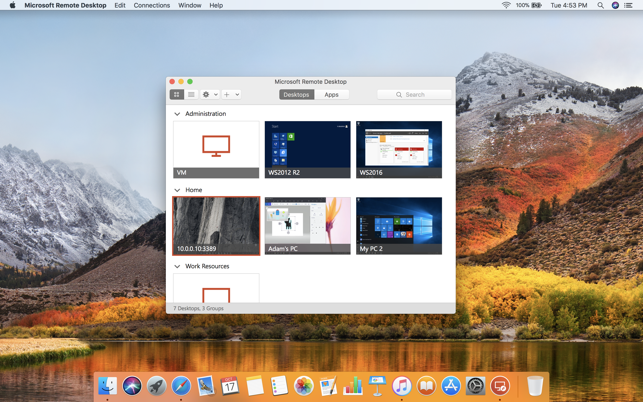Microsoft Store For Mac
Microsoft this week outlined a list of 10 principles for the Microsoft Store on Windows in a not-so subtle jab at Apple and Google. The overall message: Microsoft supports Epic Games in its war with Apple and Google over the 30% cut the companies take of every purchase on the iOS App Store and the Google Play store, respectively.
Last week, Google doubled down on its stance by saying that a) Android supports different app stores (unlike iOS) and that b) Google would enforce its 30% cut on digital items (like Apple does). Since there’s no way Apple is going allow third-party app stores on iOS, Google decided to present Android as the lesser of two evils to ensure it could keep printing cash. That gamble could very well pay off, but Google should have taken the “don’t be evil” route and adopted Microsoft’s stance first.
Microsoft Word For Mac
Apple sends a receipt each time you use our in‑app purchase feature, and you can also view those purchases and subscriptions in your account. So you won’t get bills out of the blue. Every day, moderators review worldwide App Store charts for quality and accuracy. 2 days ago Taking shots at Apple. In a direct jab at rival tech behemoths, Microsoft is adopting 10 principles for how it will operate its app store that it says will promote choice, fairness, and innovation. Microsoft Office and the Mac App Store. This article covers frequently asked questions about the availability of Office from the Mac App Store, and the differences between downloading Office apps directly from Microsoft. Starting in January 2019, the following Office applications are available for download from the Mac App Store: Word, Excel, PowerPoint, OneNote., and OneDrive.
Epic kicked off this whole saga on August 13 by updating Fortnite for Android and iOS to use its own billing service, resulting in Apple and Google deleting the game from their mobile app stores. Epic then turned around and sued both tech giants. The lawsuits could define how all developers, from individuals to massive corporations, distribute apps and games not just on the world’s duopoly of mobile operating systems, but, as Microsoft has signaled, on computing devices in general.
Here are Microsoft’s app store principles:
- Developers will have the freedom to choose whether to distribute their apps for Windows through our app store. We will not block competing app stores on Windows.
- We will not block an app from Windows based on a developer’s business model or how it delivers content and services, including whether content is installed on a device or streamed from the cloud.
- We will not block an app from Windows based on a developer’s choice of which payment system to use for processing purchases made in its app.
- We will give developers timely access to information about the interoperability interfaces we use on Windows, as set forth in our Interoperability Principles.
- Every developer will have access to our app store as long as it meets objective standards and requirements, including those for security, privacy, quality, content and digital safety.
- Our app store will charge reasonable fees that reflect the competition we face from other app stores on Windows and will not force a developer to sell within its app anything it doesn’t want to sell.
- Our app store will not prevent developers from communicating directly with their users through their apps for legitimate business purposes.
- Our app store will hold our own apps to the same standards to which it holds competing apps.
- Microsoft will not use any non-public information or data from its app store about a developer’s app to compete with it.
- Our app store will be transparent about its rules and policies and opportunities for promotion and marketing, apply these consistently and objectively, provide notice of changes and make available a fair process to resolve disputes.
Google could have, and frankly should have, written its own version of these rules. The company already essentially does rule number one. Even more so for rule number two. But it’s that rule number three that Google couldn’t give up. Google could have written the rest of the rules, for Android, saving itself years of legal battles and antitrust issues. But you see, number three is too much of a cash cow.
I think it’s often lost on most people why the 30% tax is so massive. In addition to the sticker price of an app or game, the tax encompasses every single transaction that happens inside of every Android/iOS app and game, from subscription fees down to every digital coin and virtual item. Google, like Apple, wants to keep charging a 30% cut of all that. The companies do so by requiring that all apps use their respective billing systems.
Here is this week’s Microsoft rule, rewritten for Google:
We will not block an app from Android based on a developer’s choice of which payment system to use for processing purchases made in its app.
And here is what Google wrote instead last week:


Microsoft Store Macedonia
We only collect a service fee if the developer charges users to download their app or they sell in-app digital items, and we think that is fair.
Microsoft Office Apple

Dear Google, you’ve confused fairness with greediness. And now it’s too late to save face. You drew a line in the sand separating yourself from Apple, but Microsoft drew a circle around the two of you and jumped in the water with Epic.
Microsoft Store Macbook
ProBeat is a column in which Emil rants about whatever crosses him that week.
